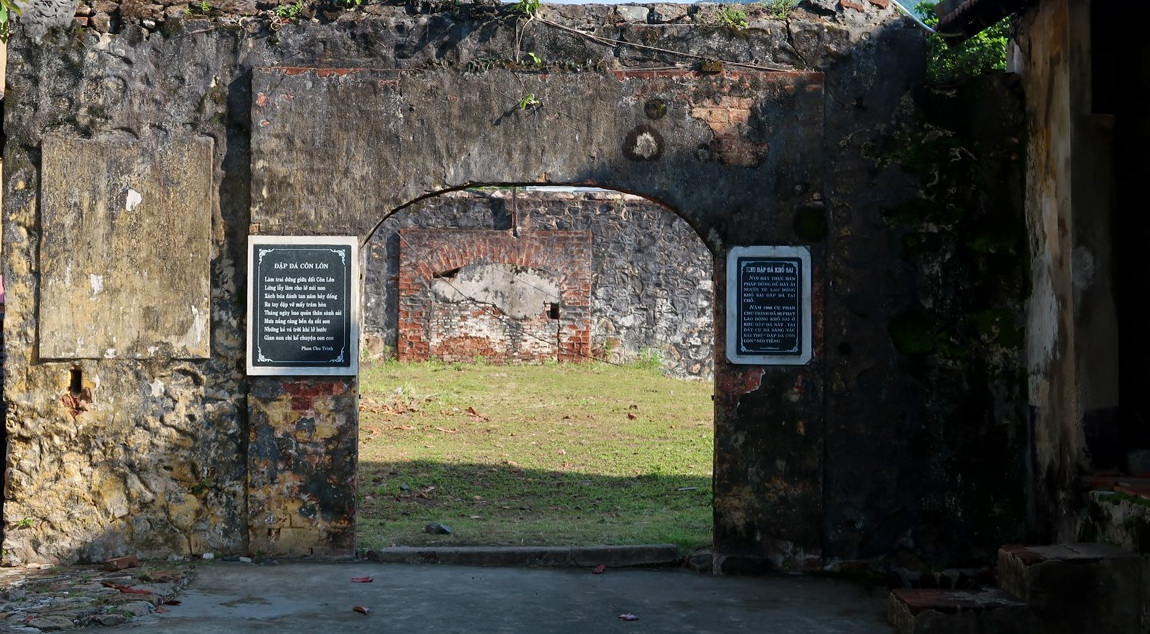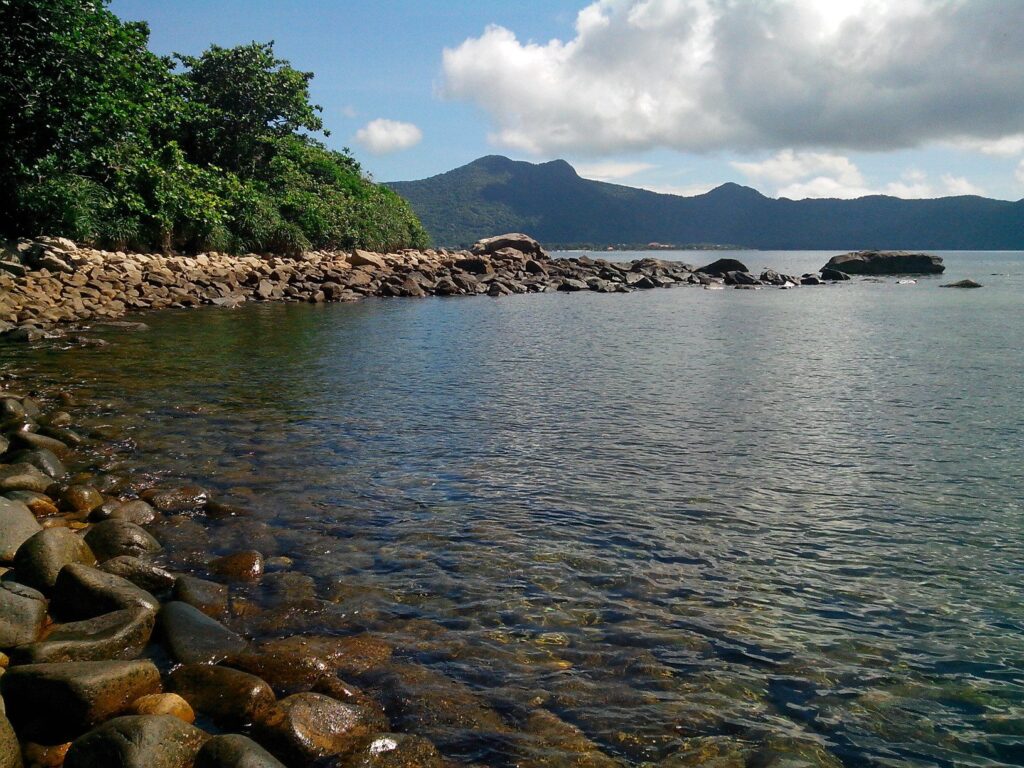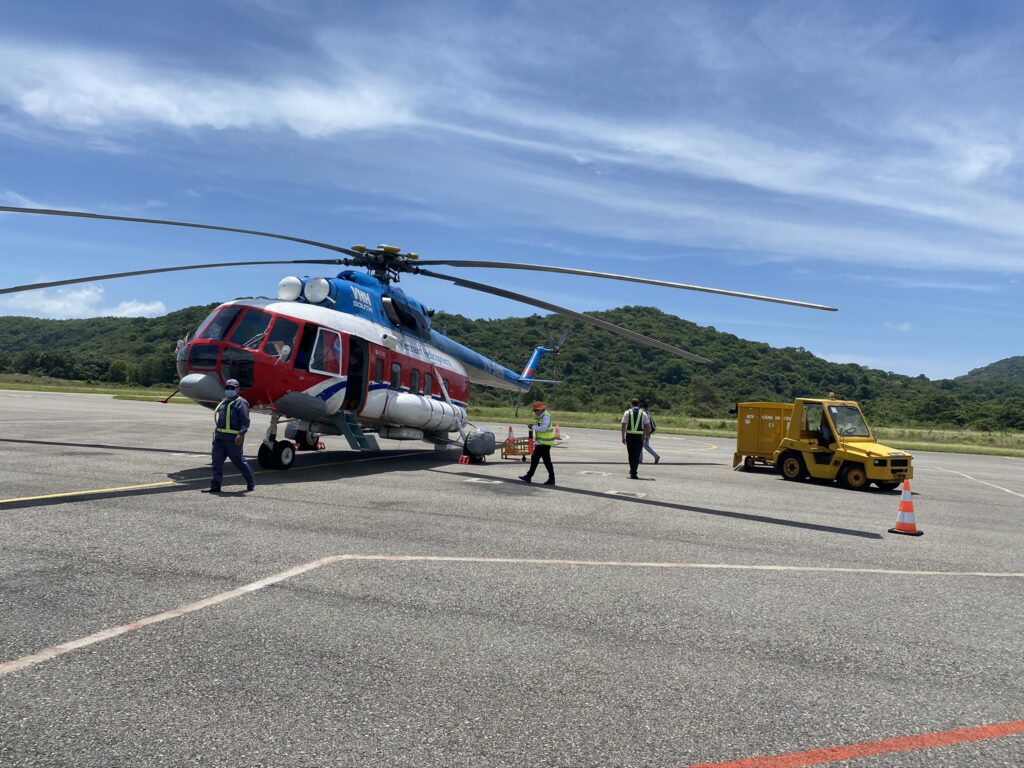At Phú Hải Prison, following the left wing of cell blocks and circling around to the special solitary confinement row, one eventually comes upon a site that must be visited—revealed solemnly through the heavy rain: the Hard-Labor Rock-Breaking Yard.
Inside the walled-off open yard lies the very place where patriot Phan Chu Trinh once swung his hammer to break rocks in 1908. It is difficult to imagine how this harsh, desolate place could become the source of inspiration for his famous poem “Breaking Rocks in Côn Lôn.”
Compared to the vast 12,000 m² grounds of Bagne I (later renamed Phú Hải Prison), the rock-breaking yard is small and confined, tucked away inside one of the harshest corners of the prison.
Côn Đảo – An Island of Stone
Everywhere on Côn Đảo, stone dominates the landscape. From Cỏ Ống Airport toward the island’s center, the road winds around rugged granite mountain ranges. These formations stretch from the southwest to the northeast, with the highest point being Thánh Giá Peak on the main island of Côn Sơn.
But the island is not granite alone. Geologists have identified a remarkable geological diversity: acidic intrusive Mesozoic magma, acidic volcanic rocks, intermediate volcanic formations, and more. From this enormous “stone warehouse,” colonial authorities forced prisoners to cut, break, and haul rocks to construct the very prisons and walls that confined them.
The Rock-Breaking Station (Sở làm đá) produced quarry stones for prison walls and gravel for road construction—through the back-breaking labor of shackled prisoners.
Poem: Breaking Rocks in Côn Lôn
(“Đập đá Côn Lôn” – Phan Chu Trinh)
To stand as a man on Côn Lôn’s land,
Shaking the mountains with one’s mighty hand.
Swing the hammer—shatter five, seven piles;
A single blow breaks hundreds into tiles.
Hard days and stone-hard bodies—who complains?
Sun and rain only forge a heart that’s steel and flame.
Those who once patched the sky but stumbled on their way—
Why fear hardships now? Such troubles are mere fray.
(This rendition keeps meaning and tone; a more literal version can also be provided if you prefer.)








